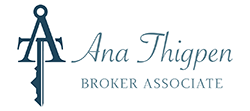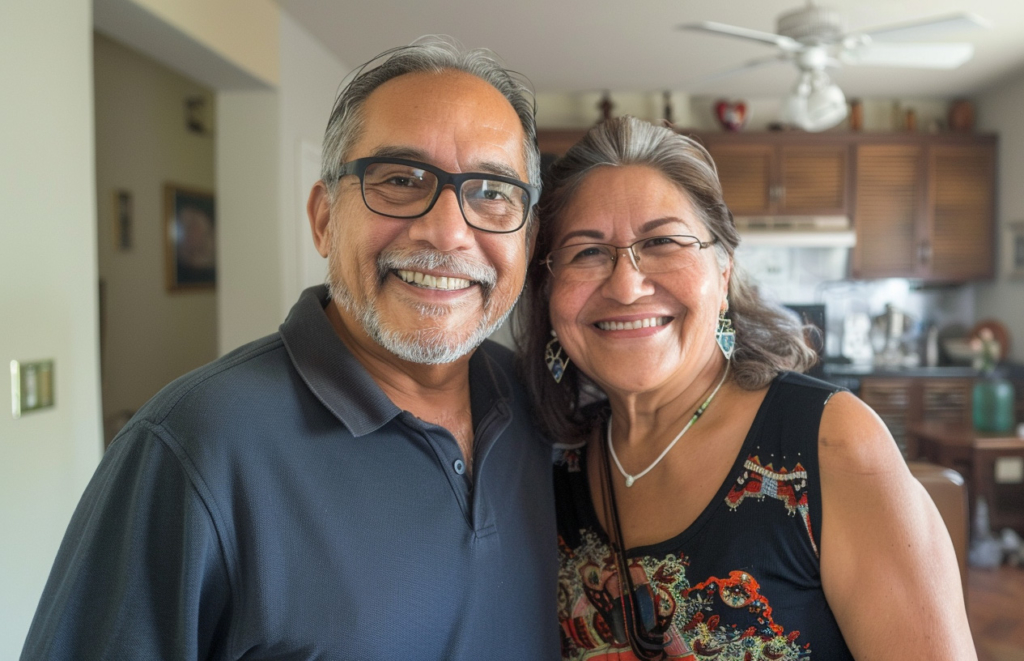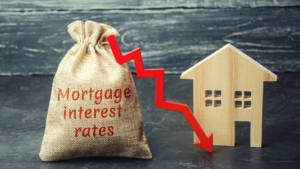Understanding reverse mortgages can be a great asset to maximize homeownership and financial security in retirement. At age 62 or above, homeowners find reverse mortgages, or Home Equity Conversion Mortgages (HECM), as a viable option offering the flexibility to borrow against their home equity without the burden of monthly payments. This financial tool, albeit complex, provides an opportunity to improve financial stability in our golden years, a valuable need for many in retirement planning.
Our article is all about reverse mortgages, explaining how they work, outlining the requirements for eligibility, and discussing their advantages and disadvantages. This will help you determine if a reverse mortgage is a good fit for you. We will also guide you through the financial implications, the different types of reverse mortgages, and how they can be an important part of a retirement strategy.
Understanding Reverse Mortgages
Understanding a reverse mortgage can be instrumental for financial planning for those aged 62 and above. It is essentially a loan that allows homeowners to borrow against the equity of their homes without the need to make monthly mortgage payments. Here’s a breakdown of the key aspects of a reverse mortgage:
- What is Reverse Mortgage?
- A reverse mortgage is specifically for homeowners 62 years or older, enabling them to convert part of their home equity into cash.
- Types and Requirements:
- The most common type, the Home Equity Conversion Mortgage (HECM), is federally insured. To qualify, one must be at least 62, undergo counseling, and meet certain financial criteria.
- Alternatives include single-purpose reverse mortgages for specific expenses and proprietary reverse mortgages from private lenders, often with higher interest rates.
- Financial Mechanics:
- Loan amounts grow over time, with repayment deferred until the home is sold, the borrower moves out permanently or passes away. Borrowers remain responsible for property taxes and insurance.
Understanding these aspects of reverse mortgages allows homeowners to make informed choices regarding reverse mortgages as part of their retirement strategy.
- Loan amounts grow over time, with repayment deferred until the home is sold, the borrower moves out permanently or passes away. Borrowers remain responsible for property taxes and insurance.
Eligibility and Requirements
To qualify for the most common reverse mortgages, such as the Home Equity Conversion Mortgage (HECM), applicants must meet a series of eligibility requirements. These include:
- Age and Residency: Homeowners must be 62 years or older and the property should be their primary residence.
- Financial Standing: A substantial portion of the mortgage should be paid off. Homeowners should also have the financial capability to continue paying property-related expenses such as property taxes and homeowners insurance.
- Counseling Session: A counseling session with a HUD-approved counselor is mandatory to discuss the financial implications and alternatives to a reverse mortgage.
Additionally, the property must meet FHA standards. If not, the lender will outline the necessary repairs. It’s crucial for homeowners to understand that a reverse mortgage becomes due under circumstances such as the borrower’s death, the sale of the home, or if the borrower moves out. Not meeting obligations like paying property taxes or maintaining the home can lead to early repayment demands. The maximum loan amount is determined based on factors including the homeowner’s age, property value, existing mortgage balance, and interest rates.
In California, while the basic eligibility and requirements for reverse mortgages align with federal guidelines, state laws provide additional protections for borrowers. This includes mandatory counseling sessions sponsored by HUD to ensure applicants are fully informed about how reverse mortgages work, their implications, and potential alternatives.
Pros and Cons
When considering a reverse mortgage, weighing the advantages and disadvantages is important to determine if it’s the right move for you. Here’s a breakdown of the pros and cons:
Pros:
- No Monthly Payments: One of the main benefits of a reverse mortgage is that, unlike traditional loans, it doesn’t require monthly payments from you; instead, the lender pays you, which can provide a steady income stream.
- Tax-Free Income: The money you receive from a reverse mortgage is not taxable, which can help maximize your retirement income.
- Flexible Fund Disbursement: You have the freedom to choose how to receive your funds, whether it be a lump sum, monthly payments, a line of credit, or a combination.
- Non-Recourse Loan: You are protected from owing more than the value of your home, offering peace of mind that you won’t leave debt to your heirs.
- Heir Options: Your heirs have several options to manage the home after you pass away or decide to move out, including selling the property or keeping it by paying off the reverse mortgage.
Cons:
- Higher Costs: Reverse mortgages can come with higher initial costs, including a 2% upfront fee and a 0.50% annual MIP.
- Impact on Government Benefits: The funds from a reverse mortgage may affect your eligibility for needs-based programs like Medicaid or SSI.
- Exploitation Risk: Seniors must be cautious of potential exploitation and should seek advice from independent financial advisors to avoid scams.
- Interest Accumulation: Over time, interest can compound on the loan balance, leading to a significant increase in debt.
- Inheritance Impact: While heirs have options, the loan balance, including accrued interest and fees, may reduce the inheritance they receive.
It’s important to consult with trusted financial advisors to make informed decisions based on your circumstances and understand all aspects of reverse mortgages and how they work. Remember, maintaining the property and paying ongoing property-related costs such as taxes and insurance is vital to avoid the loan becoming due prematurely.
Financial Implications and Costs
When considering a reverse mortgage, it’s important to understand the financial implications and costs, which can be quite different from other types of home loans. Here’s a breakdown of what you can expect:
Upfront Costs:
- Counseling Fee: Expect to pay between $125 and $200 for the required counseling session for HECM loans, which provides valuable information about the process.
- Origination Fees: These can reach up to $6,000 for HECM loans and are paid to the lender for processing your loan.
- Third-party Charges: These include various fees such as appraisal, title insurance, recording fees, and credit checks.
- Initial Mortgage Insurance Premium: For HECM loans, this is 2% of the home’s value, providing insurance for the loan balance.
Ongoing Costs:
- Interest: This may be fixed or variable and is added to the loan balance over time.
- Servicing Fees: Monthly fees covering account maintenance, insurance, and fund disbursement.
- Annual Mortgage Insurance Premium: 0.5% of the borrowed amount for HECM loans.
- Property Charges: Ongoing expenses like homeowners insurance, property taxes, and possibly flood insurance.
become
Considerations:
- Overall Expense: Reverse mortgages can become more costly than traditional home loans or alternatives like home equity loans or lines of credit.
- Impact on Family: Homeowners need to consider how a reverse mortgage affects their heirs and long-term plans.
- Required Counseling: Meeting with a HUD-approved housing counselor is mandatory for HECM reverse mortgages and recommended for others to understand the costs and implications fully.
- Borrow Wisely: To keep ongoing costs manageable, borrow only what you need.
- Homeowner Responsibilities: You’re still on the hook for property taxes, insurance premiums, and HOA fees.
- Repayment: If the borrower is no longer in the home, survivors must repay the loan in full or surrender the home.
Before making a decision, it’s wise to consult with a financial advisor and consider all your options, such as utilizing other assets, refinancing, or obtaining a home equity line of credit or loan. Understanding these expenses and their long-term impact is key to determining if a reverse mortgage is right for your situation.
Different Types of Reverse Mortgages
When analyzing the question, “what is a reverse mortgage?” it’s important to understand the various types available. Here’s a quick breakdown:
- Home Equity Conversion Mortgages (HECMs):
- These are the most common type of reverse mortgages.
- HECMs are insured by the FHA and have government-regulated interest rates.
- To obtain an HECM, counseling with a HUD-approved counselor is required.
- Proprietary Reverse Mortgages:
- Also known as jumbo reverse mortgages.
- Suitable for homeowners with higher home values, offering higher borrowing limits.
- Offered by private lenders, these are not FHA-insured.
- Single-Purpose Reverse Mortgages:
- These are the least expensive option but are not as widely available.
- Offered by state and local governments or non-profits for specific purposes like home repairs or property taxes.
- Typically for low to moderate-income homeowners.
Comparison Shopping:
- It’s crucial to compare reverse mortgage options.
- Look for the most favorable terms, including loan options, fees, and interest rates.
- Consult with multiple lenders to ensure you’re getting the best deal for your situation.
Remember, each type of reverse mortgage serves different needs and financial situations. Whether you’re considering how reverse mortgage loans can complement your retirement plan or simply seeking to understand the reverse mortgage definition more clearly, it’s essential to weigh these options carefully. Always ask yourself, “are reverse mortgages good for my specific needs?” and “how does a reverse mortgage work in my favor?” By doing so, you’ll be better positioned to make an informed decision.
Reverse Mortgages as a Retirement Strategy
Reverse mortgages can be a strategic component in retirement planning, especially for homeowners 62 or older looking to convert home equity into cash. As the most common type, Home Equity Conversion Mortgages (HECMs) offer various income options, such as lump-sum payouts, credit lines, and monthly cash advances. The amount one can borrow is determined by age, home value, and interest rates, with a maximum limit set for 2023.
Key Considerations for Using Reverse Mortgages in Retirement:
- Income Stream: Reverse mortgages provide an alternative income stream by paying off the original mortgage and eliminating monthly payments, though homeowners must keep up with insurance, taxes, and maintenance.
- Repayment Terms: The loan is repaid when the homeowner sells the property, moves out, or passes away. It’s essential to understand these terms to ensure they align with your long-term living arrangements and estate plans.
- Financial Strategy: Proceeds from a reverse mortgage may allow homeowners to refocus other areas of their investment portfolio, potentially supporting more efficient retirement income strategies.
- Professional Guidance: It’s crucial to work with a financial advisor who considers home equity as a vital part of retirement planning and helps evaluate all available options.
- Borrower Protections: HECM reverse mortgages come with mandatory counseling and protections, such as the right to cancel and non-recourse loans, which safeguard borrowers and their spouses.
- Alternatives: Before deciding, explore other options like downsizing, refinancing, or establishing a short-term line of credit to ensure the best financial path forward.
Reverse mortgages should be approached with thorough research and caution, considering all aspects of this significant financial decision. When used responsibly, they can create liquidity for assets and offer new avenues to support retirement. Always consult with a trusted and fiduciary adviser, and be aware of potential scams.
Conclusion
Throughout our review of reverse mortgages, we’ve uncovered the essential details that retirees must consider when contemplating this financial resource. We’ve illustrated the mechanisms of Home Equity Conversion Mortgages (HECMs), qualifications, the duality of potential benefits, and the weight of associated drawbacks.
Reverse mortgages offer seniors a way to tap into home equity for a strategic lift in income during retirement, but they also come with unique challenges to inheritance and cost.
As homeowners consider taking out a reverse mortgage, it is important to make an informed decision and seek professional advice. The impact of a reverse mortgage extends beyond the immediate financial relief it provides and can affect one’s estate and family in the future. While the prospect of increasing liquid assets may be tempting, it is wise to carefully evaluate and navigate the process to ensure a secure and prosperous retirement.
the
FAQs
Understanding the Basics of Reverse Mortgages
Q: What are the essential criteria to qualify for a reverse mortgage?
A: To qualify for a reverse mortgage, the homeowner must be at least 62 years old, and the home must be their primary residence, occupied for the majority of the year. The homeowner should either own the home outright or have a minimal mortgage balance remaining. Additionally, they cannot have federal debt like federal income taxes or student loans.
Q: What are the potential disadvantages of obtaining a reverse mortgage?
A: Reverse mortgages often come with higher costs compared to other loan types and can increase the risk of foreclosure if certain conditions aren’t met. For instance, if a borrower fails to pay property taxes or insurance, they could lose their home.
Q: What are the steps involved in securing a reverse mortgage?
A: The process of obtaining a reverse mortgage includes seven main steps:
- Gathering information and conducting research.
- Undergoing counseling.
- Completing the application.
- Having the home appraised and setting up an escrow account.
- Going through underwriting.
- Closing on the loan.
- Receiving the loan disbursement.
Q: What types of reverse mortgages are available?
A: There are three main types of reverse mortgages: single-purpose reverse mortgages, which are typically offered by state and local government agencies; federally insured reverse mortgages, also known as Home Equity Conversion Mortgages (HECMs); and proprietary reverse mortgages, which are private loans.
Q: What is the 60% rule in reverse mortgages?
A: The 60% rule in reverse mortgages restricts borrowers from accessing more than 60% of the approved loan amount in the first year, unless the funds are needed to pay off an existing mortgage plus an additional 10%. This rule is designed to help borrowers conserve their home equity over time.
Q: How much money can you receive from a reverse mortgage?
A: The amount of money a borrower can receive from a reverse mortgage typically ranges from 40% to 60% of the home’s appraised value. The exact amount depends on the borrower’s age, life expectancy, current interest rates, and other factors.
Q: What is considered the biggest issue with reverse mortgages?
A: One of the primary concerns with reverse mortgages is their cost, which includes lender fees, mortgage insurance premiums, and closing costs. These fees can be substantial and impact the overall benefit of the reverse mortgage for some homeowners.
Q: Why might someone be dissatisfied with a reverse mortgage?
A: Disappointment with reverse mortgages often stems from higher closing costs compared to traditional loans, the requirement for the property to be the primary residence, the non-assumability of the loan, and potentially less equity available to leave as an inheritance.
Q: What is a general guideline for the amount of equity needed for a reverse mortgage?
A: While it varies by lender and loan type, a common guideline is that homeowners should have at least 50% equity in their home to qualify for a reverse mortgage.
Q: Is it possible to lose your home with a reverse mortgage?
A: Yes, foreclosure is a possibility with a reverse mortgage, though it’s less common than with traditional mortgages due to the absence of mandatory monthly payments. Foreclosure can occur if the borrower fails to meet the loan obligations, such as paying property taxes and maintaining insurance.
Q: In a reverse mortgage, who retains ownership of the home?
A: The homeowner retains the title and ownership of the home when they take out a reverse mortgage. The most common type of reverse mortgage, the HECM, does not change the homeowner’s ownership status.




